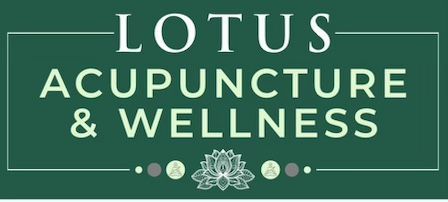Acupuncture has been practiced for over 5,000 years, and modern scientific research is now uncovering how and why this ancient healing method is effective. Leading scientists, hospitals, and medical institutions worldwide have conducted studies that validate acupuncture as a safe, effective, and respected medical treatment.
Today, acupuncture is
gaining widespread acceptance as a complementary and alternative therapy for treating
chronic pain, neurological conditions, reproductive health, and systemic disorders.
Scientific Studies Supporting Acupuncture
- A 2013 study published in the Clinical Journal of Pain in China found that acupuncture effectively reduces lower back pain, one of the most common musculoskeletal conditions.
- A systematic review in the Spine Journal analyzed 32 studies on acupuncture for chronic lower back pain, finding that 25 of them demonstrated significant pain relief with little to no side effects.
- The American Journal of Emergency Medicine (2016) compared acupuncture vs. morphine for pain relief in emergency room patients. The study found acupuncture provided superior pain relief while reducing the risk of adverse side effects.
- A 2016 study from The Cochrane Review found that acupuncture can not only relieve migraine pain but also help prevent migraines from occurring.
- Research published in the Journal of Alternative and Complementary Medicine concluded that acupuncture significantly reduced migraine frequency and severity, improving patients' daily lives.
- The BMJ (2013) reported that acupuncture and moxibustion increased the success rate of in vitro fertilization (IVF), particularly for women with previous embryo implantation failures.
- A meta-analysis reviewing over 300 studies found that acupuncture could support menstrual cycle regulation, ovulatory function, and fertility.
- A 2016 study published in The BMJ found that acupuncture was effective in reducing pain and improving quality of life for individuals with fibromyalgia.
- Patients receiving acupuncture showed greater improvements compared to those receiving placebo or sham acupuncture.
- A study in The BMJ demonstrated that acupuncture provides significant symptom relief for those suffering from IBS.
- Participants underwent up to 10 weekly acupuncture sessions, with many reporting reduced discomfort and improved digestive function.
- The Journal of Affective Disorders conducted a study on laser acupuncture for depression, concluding that participants experienced a significant reduction in depressive symptoms after just 12 treatment sessions.
- A meta-analysis in Evidence-Based Complementary and Alternative Medicine found that acupuncture lowered systolic and diastolic blood pressure in patients already on hypertension medication.
- Over a 6- to 10-week treatment period, patients saw a steady decline in blood pressure levels.
- A study published in Integrative Cancer Therapies at MD Anderson Cancer Center in Houston found that 90% of participants experienced significant pain relief after 10 acupuncture treatments.
- Cancer patients also reported an improved quality of life and a reduction in the need for pain medication.
- A 2017 study in The Journal of Alternative and Complementary Medicine demonstrated that acupuncture, when used alongside conventional asthma treatments, improved lung function and reduced symptoms.
- A review of 1,763 participants found that acupuncture significantly reduced pain levels in osteoarthritis patients.
- Those receiving acupuncture reported greater mobility and overall quality of life improvements compared to those who did not receive the treatment.
- A 2016 study from the Mucosal Immunology Research Group found that acupuncture helped reduce nasal congestion, eye irritation, and sneezing in individuals suffering from allergies.
How Acupuncture Works: Scientific Theories
1. Neurotransmitter Theory
Acupuncture stimulates the release of endorphins, enkephalins, and other neurotransmitters in the brain and spinal cord. These natural chemicals help reduce pain, enhance mood, and improve immune system function.
2. Blood Chemistry Regulation
Research suggests that acupuncture can influence blood chemistry by regulating cholesterol, triglycerides, and phospholipids, promoting overall cardiovascular health and balance.
3. Autonomic Nervous System Modulation
Acupuncture stimulates the release of norepinephrine, acetylcholine, and opioid peptides, which help regulate the autonomic nervous system and reduce pain perception.
4. Electrical & Vascular Theory
Acupuncture affects the body's electrical system by enhancing circulatory pathways, improving the exchange of nutrients and energy between healthy and damaged tissues, thus accelerating healing.
5. Gate Control Theory
Acupuncture stimulates non-pain nerve receptors, which help block pain signals from reaching the brain, effectively "gating out" pain.

Acupuncture: A Recognized & Effective Treatment
Today, acupuncture is widely accepted by major health organizations, including:
📌 The National Institutes of Health (NIH) – States that acupuncture is effective for a wide range of conditions.
📌 The World Health Organization (WHO) – Recognizes acupuncture as a valid treatment for over 100 medical conditions.
📌 The American College of Physicians – Recommends acupuncture as a first-line treatment for lower back pain.
📌 Blue Cross Blue Shield (2019) – Began covering acupuncture as an alternative to opioids for chronic pain management.
Conditions That Acupuncture Can Help With:
- Chronic Pain (Back, Neck, Joint, Migraines)
- Mental Health (Depression, Anxiety, PTSD, Insomnia)
- Digestive Disorders (IBS, Ulcers, Acid Reflux)
- Reproductive Health (Menstrual Issues, Infertility, IVF Support)
- Respiratory Conditions (Asthma, Allergies, Sinus Issues)
- Neurological Disorders (Stroke Recovery, Parkinson’s, Neuropathy)
- Autoimmune Conditions (Rheumatoid Arthritis, Fibromyalgia, Lupus)
- Cancer Pain & Treatment Side Effects
A Safe, Natural, and Effective Healing Approach

Acupuncture is proven to be effective for a wide range of medical conditions, offering a safe, drug-free approach to health and well-being. As research continues, acupuncture’s role in integrative medicine will only expand.
If you’re looking for a
natural way to manage pain, stress, or chronic health issues, acupuncture could be the solution.
Schedule a consultation with a licensed acupuncturist today!


